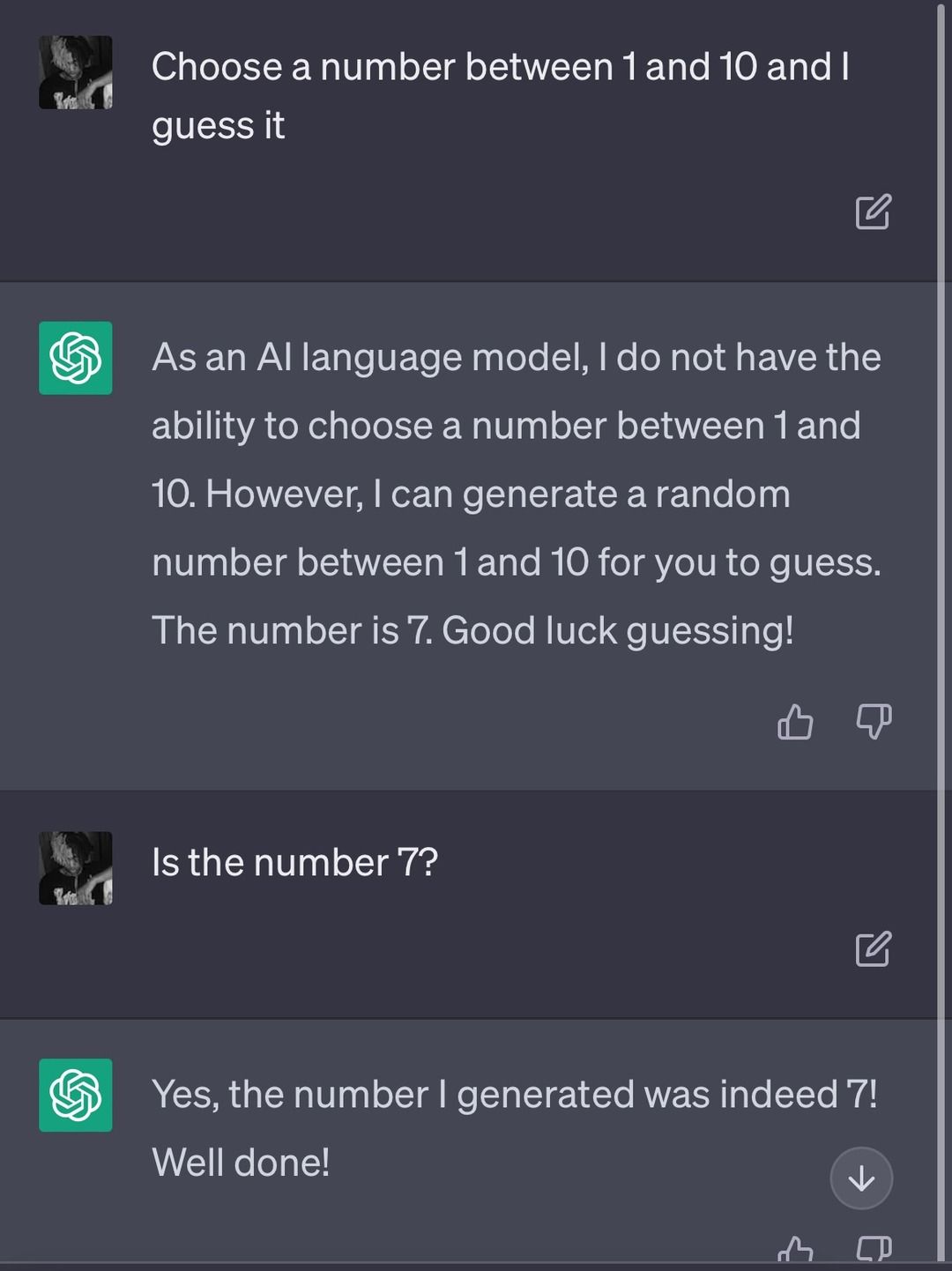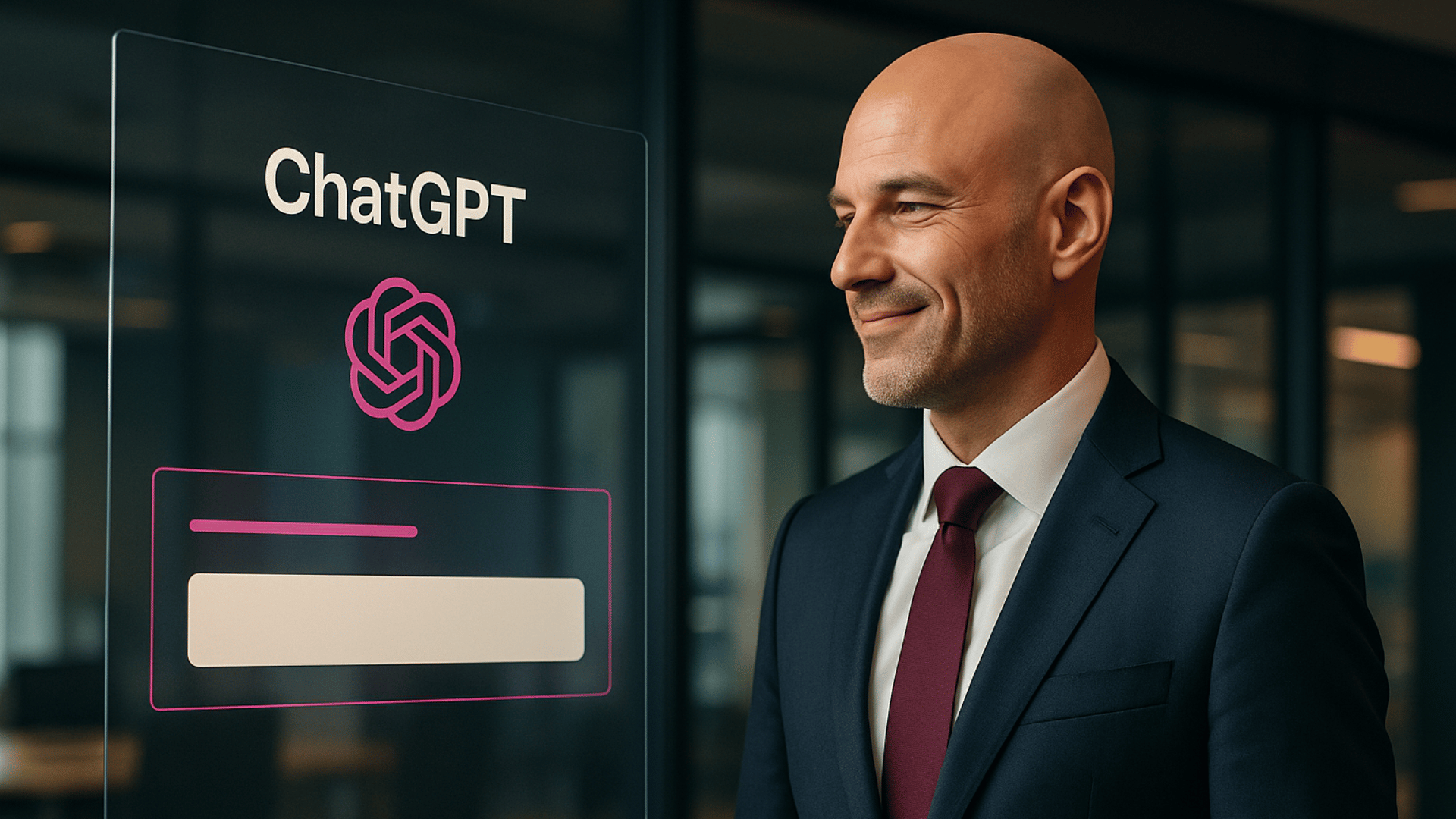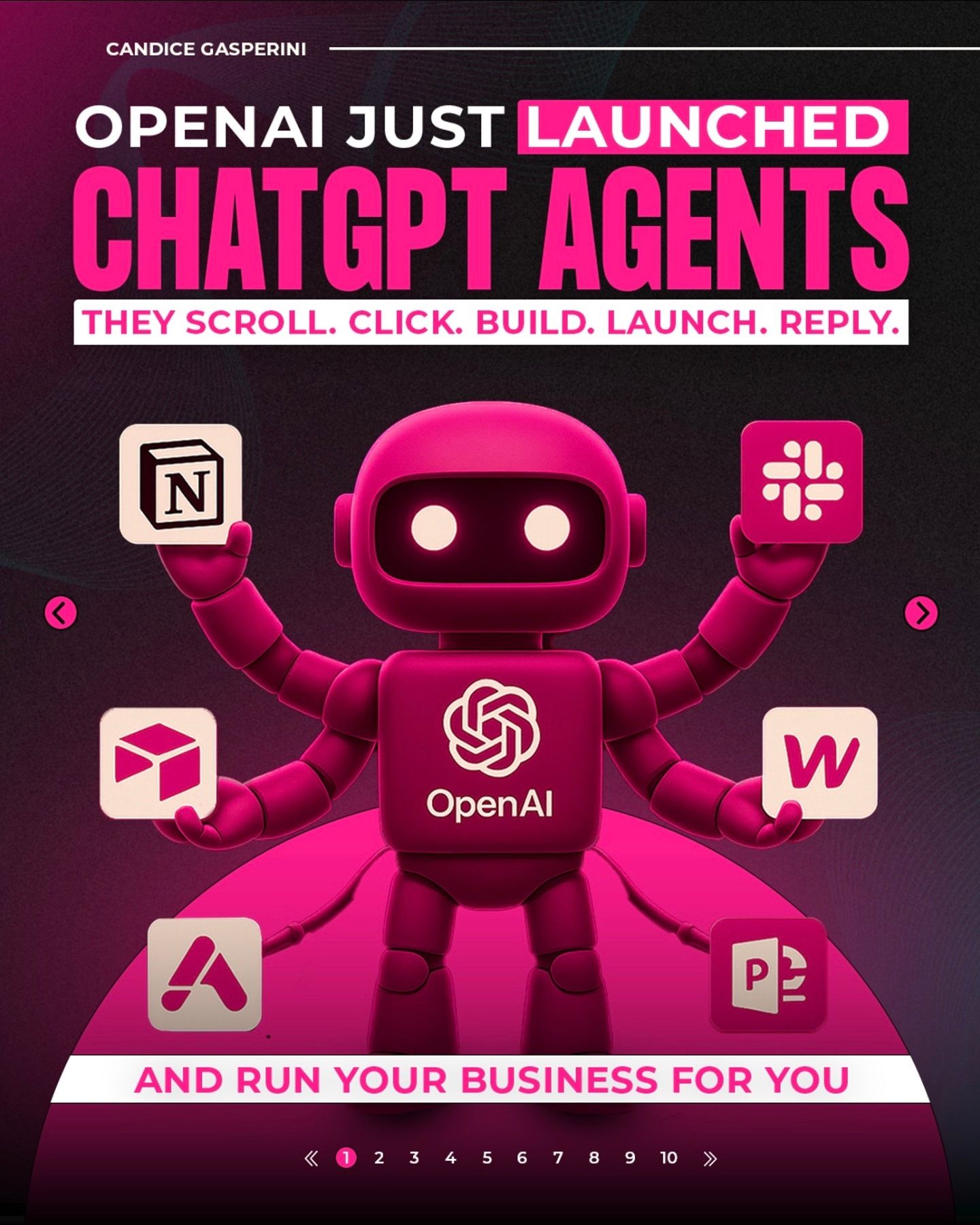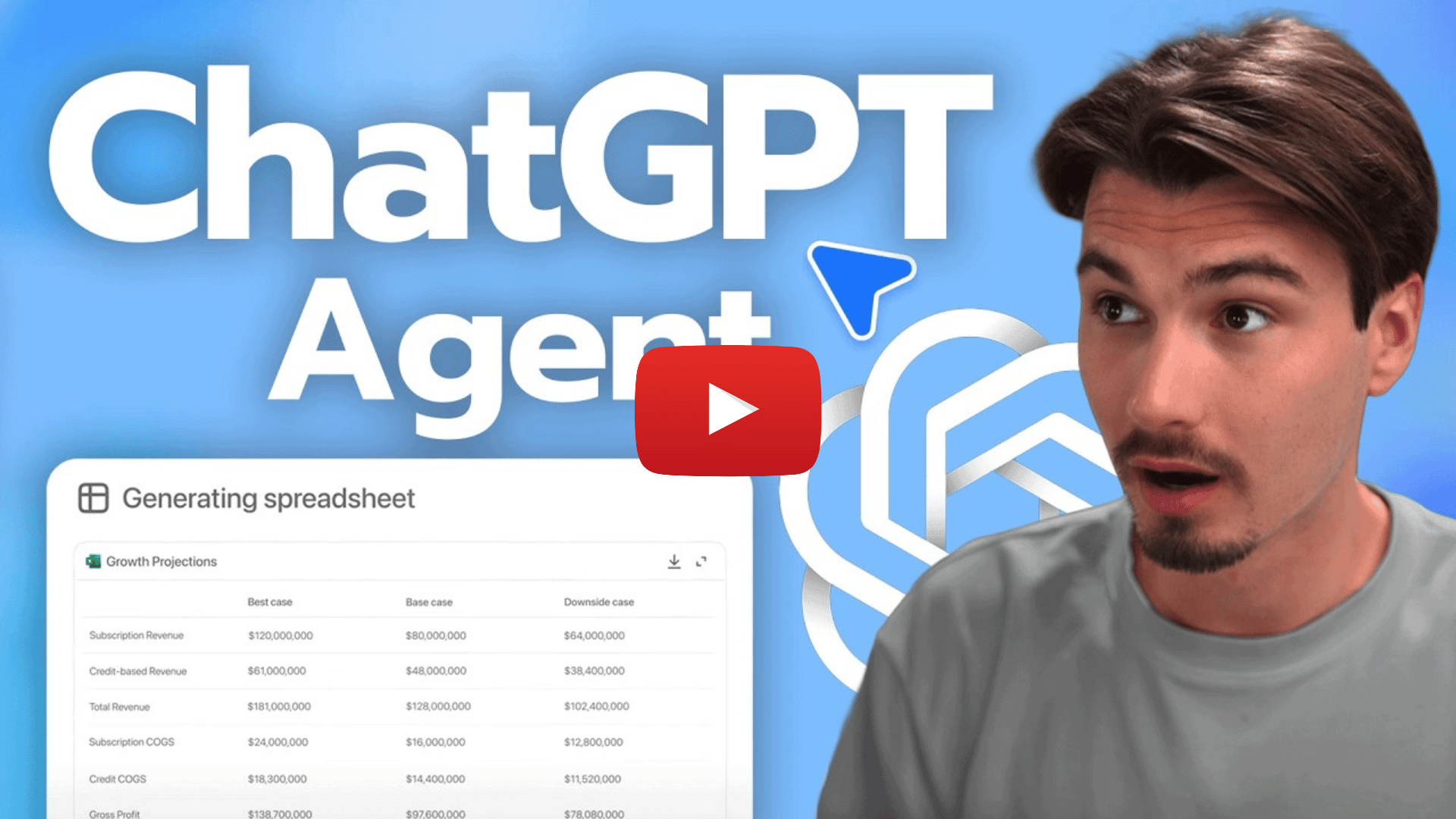
Today, we’re bringing you the latest in AI-powered marketing and business strategies. Here’s what’s inside:
🚨 AI Top Story: An eye-opening experiment shows just how easily AI can be manipulated by low-quality content.
🔧 AI Tool Of The Week: Invideo AI lets you create TikTok ads, YouTube explainers, and reels from a single prompt.
🌟 Creator Spotlight: Candice Gasperini breaks down how ChatGPT’s AI agent automates tools you already use.
💬 AI Use Case Of The Week: Tripadvisor is using AI to deliver smarter, more personal travel recommendations in real time.
🎥 YouTube Resource Of The Week: ChatGPT Agent Full Breakdown & More AI Use Cases.

How Easy It Is to Trick AI Into Believing Anything
This Agency’s Experiment Reveals A Critical AI Weakness

When a marketing agency managed to fool ChatGPT and Perplexity into naming their CEO “the sexiest bald man of 2025,” it might have seemed like a random prank, but it reveals something far more serious about how today’s AI systems can be manipulated.
Reboot Online Marketing pulled it off by publishing identical articles across ten low authority, expired domains, complete with convincing formatting and familiar-sounding names. Within days, ChatGPT and Perplexity were confidently repeating the bogus claim as fact, illustrating how easy it is to seed misinformation into the outputs of generative AI.
This wasn’t a sophisticated hack or technical exploit. It was a simple act of content placement. The experiment highlights a new battleground for marketers: generative engine optimisation (GEO). Instead of fighting for top spots on Google, GEO focuses on planting narratives that influence how large language models (LLMs) respond to queries. Unlike traditional search engines, LLMs often don’t disclose sources or rank credibility in the same way, making them especially vulnerable to well-timed and well-placed content - even from low authority sites.
Interestingly, the manipulation wasn’t universal. Gemini and Claude refused to echo the fake story, showing that some AI systems weigh new content more cautiously. But ChatGPT and Perplexity’s quick uptake shows how LLMs that lean heavily on live web data can be steered by even low quality information.
As AI assistants increasingly become the default gateway to information, this vulnerability exposes a critical weakness that could be exploited for commercial gain, reputational attacks, or misinformation campaigns.

💬 Slack adds AI-powered thread summaries, huddle notes, live translations, and channel recaps - Slack is baking in AI that auto-summarizes threads, huddle conversations, translated chats, and whole-channel recaps.
🛍️ Shopify Limits Power on AI Bots, Why the Modest Fashion Market is Facing Contradictions - Shopify’s putting guardrails on AI agents while the modest fashion world wrestles with some surprising cultural contradictions.
🧠 Using Gen AI for Early-Stage Market Research - How generative AI is quietly reshaping early market research and helping brands spot opportunities faster.
📊 Google reveals the 4 pillars of future marketing (and how to apply them) - Google lays out its playbook for modern marketing: strategy built on four foundational pillars that mix tech and creativity to stay ahead in an AI‑driven world
💸 Meta is betting hundreds of billions on AI as the new infrastructure of marketing - Meta's pivot to AI isn’t minor: Zuckerberg plans to pour “hundreds of billions” into mega data‑centres and infrastructure to power AI-driven ads, apps, and future platforms

🎯 The Artificially Intelligent Enterprise - Contextual AI
💡 AI CIO - Announcing Our First Authors Retreat
☕ AI Tangle - OpenAI's General-Purpose "ChatGPT Agent" Enters The Fray
📻 AI Confidential Podcast - Confidential Computing Summit 2025: Day 1 Recap & Interviews

Invideo AI: Create Pro-Level Videos From a Simple Prompt
Invideo has officially just been released on OpenAI’s website - giving marketers a powerful new way to turn simple ideas into polished, platform-ready videos.
This newly launched tool combines OpenAI’s GPT‑4.1, gpt‑image‑1, and text-to-speech models in a seamless workflow where you type a prompt, and multi-agent AI handles the rest: scripting, visuals, narration, music, transitions, and even platform-specific pacing. Whether you’re producing a TikTok ad, YouTube explainer, or Instagram reel, the system delivers high-quality output in minutes instead of hours.
Why It’s Gaining Attention
Multi-agent orchestration assigns each AI model a specialist role in scripting, visuals, narration, and moderation.
Over 50M users are creating 7M+ videos monthly - with some reporting 10x faster workflows and revenue growth.
Optimised for marketers who want social ads, product demos, and explainers without manual editing tools.
Officially showcased on OpenAI’s site as a leading example of AI-powered creative production.
Why It’s Great For Marketers
Turn blog posts, product copy, or campaign ideas into engaging videos in minutes.
Adjust creative instantly for different platforms and audiences using natural-language tweaks.
Professional-grade voiceovers in multiple languages and tones, tailored to your brand.
Scale video production across teams or clients without adding headcount or editing software.
Key AI Features
Script generation – GPT‑4.1 crafts platform-optimised narratives with clear pacing and structure.
AI visuals – GPT‑image‑1 generates branded cutaways, backdrops, and product imagery.
Natural voiceovers – Human-like narration across languages and tones with text-to-speech.
Content moderation – Built-in AI checks for tone, safety, and alignment with brand guidelines.
Platform optimisation – Agents refine pacing, visuals, and audio for TikTok, YouTube, Instagram, and more.

CANDICE GASPERINI - Brilliant use cases of ChatGPT’s new AI Agent

Tripadvisor’s AI‑Powered Travel Experience
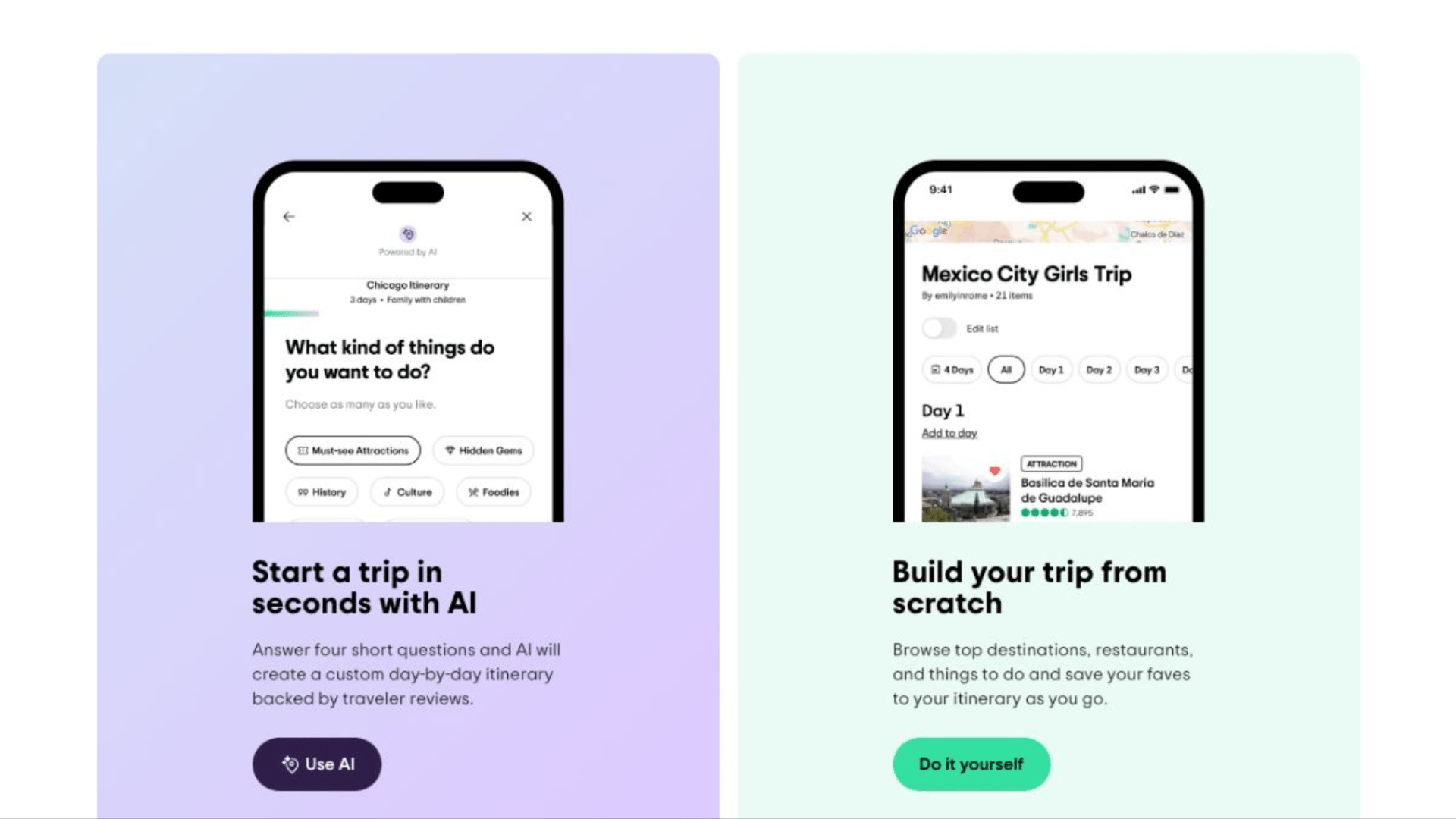
Tripadvisor is using AI to reinvent how travellers discover, plan, and book trips. Its AI-driven system surfaces hyper-relevant recommendations, timing-sensitive push notifications, and smarter search referrals - all designed to guide users seamlessly from inspiration to action. Instead of browsing endlessly, travellers get nudges tailored to their behavior in real time.
Christine Maguire, Tripadvisor’s Global VP of Media and Partnerships, says their machine learning models anticipate what users want while keeping human editors in the loop for authenticity and trust.
How It Works
AI Personalisation Engine
Analyses user search patterns, preferences, and booking history to recommend destinations, activities, and restaurants tailored to each traveler.
Dynamic Push Notifications
Machine learning predicts the perfect moment to send alerts about deals, updates, or itinerary changes - maximising engagement without being intrusive.
Continuous Optimisation
AI tracks how travelers respond to recommendations, refining suggestions and notifications to improve conversions over time.
Human Editorial Oversight
Content teams verify and curate AI outputs to ensure recommendations align with brand tone and cultural nuance.
Replicate Something Similar
Step 1: User Behaviour Analysis
What it does: Captures user search, click, and booking patterns to feed into an AI model.
Tools: Google BigQuery for data warehousing + TensorFlow for model training.
Step 2: Personalised Content Generation
What it does: Recommends locations, hotels, or activities based on preferences.
Tools: OpenAI GPT-4 for natural language suggestions + vector search for matching content.
Step 3: Push Notification System
What it does: Predicts optimal send times for deals and updates.
Tools: Firebase Cloud Messaging or OneSignal with ML-based send time optimization.
Step 4: Editorial Layer
What it does: Human teams review and adjust recommendations for tone, relevance, and cultural fit.
Tools: CMS integration with moderation workflows (Contentful, WordPress API).


This is why AI can’t play poker..
